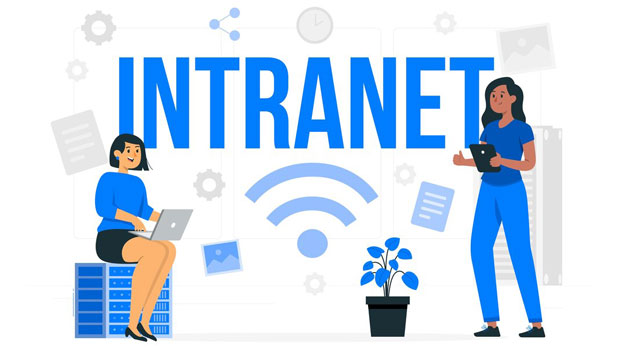When it comes to performance optimization in proxy management, Proxifier and PYPROXY are two commonly discussed tools. Both offer users the ability to route internet traffic through proxies, but their approaches, performance, and flexibility differ significantly. In terms of performance optimization, Proxifier is known for its well-established, robust features and user-friendly interface, while PyProxy, a Python-based tool, offers greater flexibility and scriptability, allowing developers to tailor performance to specific needs. This article aims to provide a detailed comparison of the two, analyzing which tool performs better when it comes to optimizing network traffic routing and proxy management for real-world use cases. 1. Overview of ProxifierProxifier is a commercial software that acts as a proxy client, allowing users to route their internet traffic through various proxies. It supports HTTP, SOCKS, and other protocols, offering robust functionality for users who need to redirect traffic for a wide range of applications, such as web browsing, email, or gaming. Proxifier stands out due to its comprehensive interface, support for multiple proxy types, and its ability to handle high-performance network environments. It has been widely adopted by professionals and organizations due to its stability and easy-to-use graphical user interface (GUI).Proxifier optimizes performance primarily by efficiently handling network connections, allowing the user to route traffic through multiple proxies without causing significant delays. By allowing the simultaneous use of different proxy servers, Proxifier balances the load and reduces the possibility of performance bottlenecks. Moreover, Proxifier offers advanced configuration options for fine-tuning proxy behavior, making it a versatile tool for users with specific networking needs.2. Overview of PyProxyPyProxy, unlike Proxifier, is an open-source Python library that offers greater flexibility for developers. With PyProxy, users can write custom scripts that define how traffic is routed through proxies. This tool is often favored by developers and advanced users who require a high degree of customization and integration with other Python-based tools and scripts. PyProxy’s key strength lies in its flexibility—developers can optimize performance by fine-tuning scripts, adding custom logic to handle proxy switching, and even implementing load balancing or caching mechanisms.PyProxy is also highly extensible and can be integrated with existing Python applications, making it suitable for complex network environments that require constant adjustments. Unlike Proxifier, which operates as a standalone application, PyProxy offers the ability to embed proxy functionality into larger systems. While this gives it a performance edge for highly specific use cases, it requires greater technical expertise to utilize effectively.3. Performance Comparison: Network Routing and LatencyThe primary consideration when comparing Proxifier and PyProxy in terms of performance is how well they handle network routing and minimize latency. Proxifier excels in environments where simplicity and stability are key. Its ability to route traffic efficiently through multiple proxies with minimal configuration means that users can benefit from stable connections and faster speeds with little technical overhead.In contrast, PyProxy provides the ability to optimize routing through custom scripting. This allows developers to select the best-performing proxies dynamically based on factors such as current latency, connection speed, and proxy reliability. With PyProxy, the performance can be finely tuned for specific applications or scenarios, making it a more scalable option for complex network requirements. However, this level of customization comes with the trade-off of increased complexity, as developers must ensure that their scripts are optimized for performance.In terms of raw speed, Proxifier typically offers slightly faster connection times out of the box, especially in standard proxy configurations, due to its optimized network stack and ease of use. However, PyProxy can potentially outperform Proxifier in scenarios where customized proxy selection and load balancing algorithms are applied, although the setup process requires more time and expertise.4. Scalability: Handling High-Traffic NetworksFor high-traffic environments, scalability is an important factor in performance optimization. Proxifier handles scalability well in terms of proxy management, as it allows users to add multiple proxies for failover and load balancing. This means that if one proxy server becomes slow or unresponsive, the traffic can be automatically redirected to another proxy. However, Proxifier’s scalability is somewhat limited by its reliance on a graphical interface and pre-configured options. While it can handle moderate to heavy traffic, it may not scale as effectively as PyProxy in more complex network environments.PyProxy, with its scriptable and customizable approach, offers better scalability for large or highly dynamic networks. By integrating load balancing algorithms, proxy rotation, and adaptive traffic management, PyProxy can handle high volumes of traffic more efficiently. This makes PyProxy the better choice for developers looking to implement large-scale network solutions that require real-time adjustments and advanced proxy management techniques.5. Usability and Configuration ComplexityOne of the main differences between Proxifier and PyProxy lies in the ease of use. Proxifier is designed for users who need a straightforward, easy-to-install solution. Its graphical interface simplifies the setup process, making it accessible for individuals who may not have technical expertise. Proxifier’s default settings are optimized for most users, meaning that performance optimization is often handled automatically with minimal intervention.On the other hand, PyProxy requires a higher level of expertise, as it involves programming and scripting. While this allows for greater flexibility and control, it also means that PyProxy is better suited for developers or advanced users who are familiar with Python programming. The learning curve for PyProxy is steeper, and performance optimization depends on the user’s ability to write efficient code and properly configure the tool for specific use cases.6. Conclusion: Which Tool Performs Better for Optimization?When it comes to performance optimization, the choice between Proxifier and PyProxy largely depends on the user’s needs and technical expertise. Proxifier shines in simplicity, providing a reliable and easy-to-use tool for routing network traffic through proxies with minimal configuration. It is an excellent choice for users who need a plug-and-play solution without diving deep into technical configurations.In contrast, PyProxy excels in flexibility and scalability, allowing developers to fine-tune performance through custom scripts and advanced configurations. If you are working in a high-traffic environment that requires real-time adjustments and custom proxy management, PyProxy is the better option. However, the added complexity of PyProxy requires more technical knowledge and may not be suitable for all users.Ultimately, both tools offer strong performance optimization, but the best choice will depend on the user’s specific requirements and their level of technical expertise. Proxifier is ideal for users seeking ease of use and quick results, while PyProxy is better for developers and users needing advanced, highly customized performance optimization.
Apr 25, 2025
![arrow]()




























































